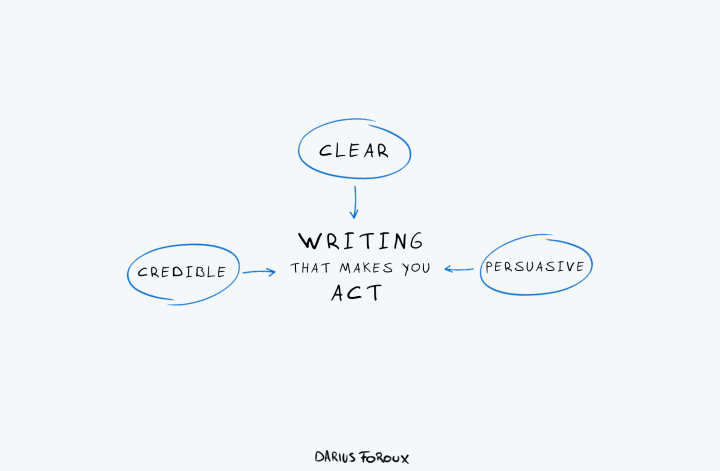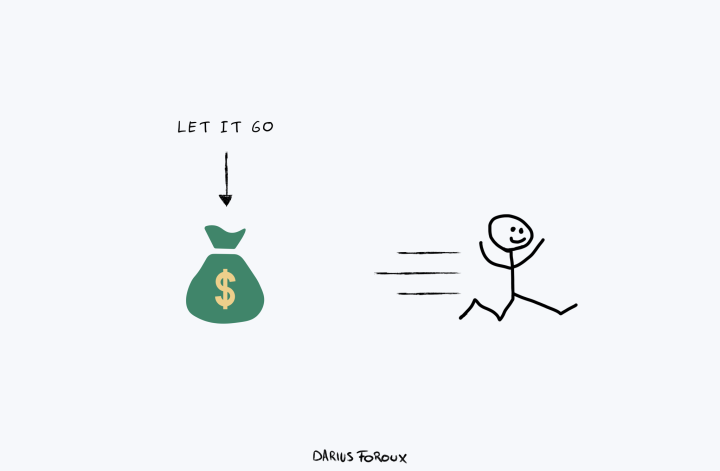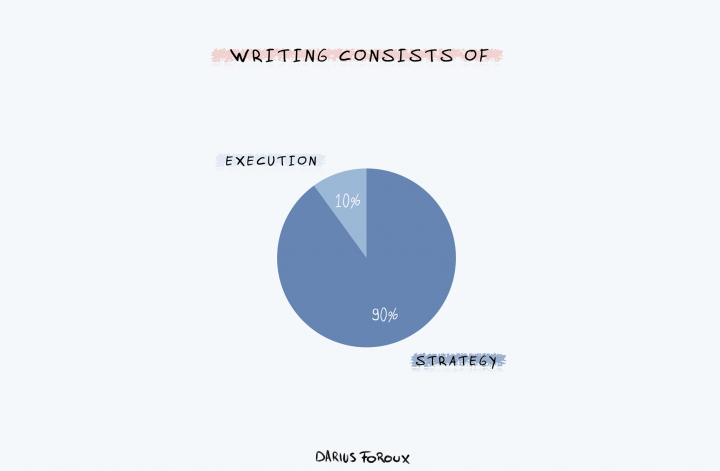Over the last few weeks, I’ve been watching a lot of YouTube videos about doing handyman stuff around the house.
You know, stuff like how to properly renovate your house. For example, I’ve used a drill many times to put together IKEA stuff.
And I’ve also drilled holes in the ceiling to hang a lamp. But I never took the time to properly learn everything about drilling.
What are all the different settings on a drill, and what are they exactly used for? What type of drill bit should you use for what job?
Before I bore you to death about my DIY journey (I’ve never been a fan), let me tell you why I’m sharing this story.
Because what I’m going through now reminds me of when I started to train in writing, a little over ten years ago.
The thing is that everyone knows how to write. We all write messages and emails. We went to school. We know how to write.
But most of us never trained ourselves to write properly.
Writing is not about talent
Many of us want to write well. Why is that?
Not for the outcomes. Especially now with AI. You don’t train to become a better writer to get better at answering emails:
No, you become a better writer because YOU want to be a good writer.
That’s all there is to it.
But you need to have a reason. When I started writing, my reason was this:
“I’m stuck. I don’t know what to do with my life. I always wanted to write a book. So let me take the time to learn how to write properly and do it well.”
That’s all.
Why am I now learning to do everything around the house?
Well, my wife and I just bought a new house and we’re expecting a child. I don’t want to depend on contractors or handymen anymore.
If my son wants to change his bedroom design, I want to do that together with him. I want to learn handyman skills, use them to do something good, and pass them on..
That’s my why.
And it has little to do with talent. It’s the same for writing. Sure, talent plays a role. But you can get VERY far by just training deliberately.
Writing as training
The more I write, the more I realize writing isn’t just a creative act; it’s a mental workout. It’s like lifting weights for your brain.
Every session teaches you something about yourself. Your focus. Your patience. Your resistance.
When you write, you see your mind in real time. You see how distracted you are. You see how often you stop to check your phone or re-read a sentence. You see how uncomfortable silence feels.
That’s the beauty of writing. It exposes your inner state.
- If your mind is scattered, your writing will be too.
- If your thoughts are clear, your words will follow.
That’s why I see writing as a meta skill.
It’s not only about communication. Writing is a practice that gives you many benefits.
So how do you train like a writer?
Start small and do it daily. Make it part of your routine, not your mood.
Here’s what’s worked for me:
- Write every day, even if it’s short.
Don’t aim for word count, aim for consistency. Writing 15 minutes a day beats writing for 3 hours once a month. - Use a timer.
Set 25–30 minutes. No distractions. No editing. Just write. When the timer ends, stop. That’s one rep. - Finish something.
Half-written pieces are easy. Finished ones are what teach you. Publish, even if it’s not perfect. - Read good writing.
Reading builds taste. Taste guides your edits. If you only read social media, you’ll write like social media. - Detach from results.
Don’t chase likes, shares, or praise. You’re not training the algorithm. You’re training yourself.
These small rules compound. Over time, your writing sharpens, and so does your thinking.
Writing as reflection
People assume writing is about expression. But for me, it’s about understanding. I write to see what I think. To find out what’s real, and what’s just noise.
That’s why I write before I make decisions. Before I start projects. Before I invest. Writing clears the fog. It shows me the truth behind my thoughts.
Most people avoid writing because it forces honesty. When you put your thoughts on paper, you can’t lie to yourself. You can’t hide behind vague feelings. You see exactly how you think, which can be uncomfortable at times.
But that’s also where wisdom begins.
The pursuit of good writing isn’t glamorous. It’s boring and happens behind closed doors.
It’s something you do for yourself at first.
And at some point, you feel ready to share it with others. If they like it, that’s great, if they don’t, that’s fine too.
What matters is that you keep training.
The secret isn’t to write perfectly. It’s to write honestly.
So stop waiting to feel ready. Stop over-editing before you’ve even finished a draft. Sit down. Write. Let it be bad. Then show up again tomorrow.
The pursuit never ends
After ten years of writing, I still don’t feel like I’ve “arrived.”
I always challenge myself to get better. And I never forget my mindset when I started. I just wanted to learn. And I’m still like that.
Some days, you’ll write nonsense.
Some days, you’ll surprise yourself. You can’t have one without the other.
Because in the end, writing isn’t about chasing the perfect sentence. It’s about pursuing the person you want to become.
That pursuit never ends.




